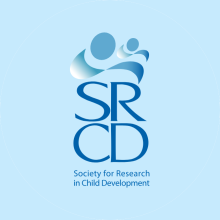July 2009 Spotlight on the SRCD Policy Fellow: Nancy Geyelin Margie, Ph.D.
2008-2009 Federal Executive Branch Policy Fellow
With the end of the first year of my fellowship in sight, I have gained important insights on (1) the development and use of policy-relevant research and evaluation in the federal government; (2) how researchers can better translate science for non-scientific audiences; and (3) how to be an advocate for the importance of research by demonstrating that the work we do is valuable and contributes to both policy makers’ ability to make strategic policy decisions and practitioners’ effectiveness in administering programs.
I have spent my fellowship year in the Office of Planning, Research, and Evaluation (OPRE) of the Administration for Children and Families (ACF) in the Department of Health and Human Services (HHS). OPRE’s purpose is to advise the Assistant Secretary for Children and Families on ways to increase the effectiveness and efficiency of ACF programs. Therefore, we work closely with program offices (such as the Office of Head Start, the Child Care Bureau, and the Children’s Bureau) to tailor research and evaluation projects and grant programs to be responsive to these offices’ needs, and provide information that helps these offices administer their programs.
As an ongoing project, I was asked to focus on a topic area of my choice that was of interest and relevant to the work of multiple program offices. The topic I chose was parental involvement/family engagement. This is a topic that is of great interest to OPRE and relevant for many ACF programs, but has not had as much attention in OPRE’s research portfolio to date as the office would like. I was charged with determining what research has been performed so far on this topic and the results of this research, what aspects of the topic the program offices are interested in, and how OPRE could help advance the field and answer some of the program offices’ questions. I have worked most closely with the Office of Head Start on this topic, and look forward to continuing this work next year.
While my work on this project continues, most of my time this year has been spent on another great opportunity – acting as one of two OPRE “consultants” to the Children’s Bureau’s Supporting Evidence-Based Home Visitation Programs to Prevent Child Abuse and Neglect Project. This project provides funding for the development of infrastructure that supports the initiation and/or expansion of evidence-based home visitation programs. Being part of this project has given me the opportunity to work very closely with a program office and with contractors who are developing a cross-site evaluation of the project. I have learned a lot about the complexity of evaluating systems change, and have had the chance to observe how federal project officers in a program office work with and support their grantees.
I have also had the opportunity to work on the Head Start Family and Child Experiences Survey (FACES) evaluation. Luckily for me, a new round of data collection was being planned this year, so I was able to sit in on design meetings and help review the measures. My work with the Office of Head Start on family engagement came in handy, as I was able to work collaboratively with OHS to suggest revisions to more fully capture that aspect of Head Start in these measures.
Finally, I have now experienced the grant review process from the perspective of a federal staffer, from beginning (writing of the Program Announcement) to the end (writing the Funding Decision Memo). Before I started the fellowship, everyone said that learning how the grant/cooperative agreement/contract process worked was one of the most valuable experiences I could have as a fellow. They were right. Writing Program Announcements and evaluation criteria was incredibly challenging and some of the most difficult writing I’ve ever done. I know it’s a skill that will stand me in good stead for the rest of my career. And the whole grant review process was enlightening. Reading applications, interacting with reviewers, reading their comments on the applications, and working with colleagues to make sure that we and the reviewers have been thorough and thoughtful in our work was all fascinating (and often exhausting).
I feel very lucky to be in OPRE. My colleagues treat me as an equal, so I have been given the opportunity to work on interesting projects and have real responsibility. At the same time, they appreciate my “fellow” status and go out of their way to mentor me. They recognize that a fellowship is a unique learning opportunity. I am very grateful that I’ve been asked to stay for a second year, because it will give me the chance to apply all that I’ve learned this past year and build on these experiences.
